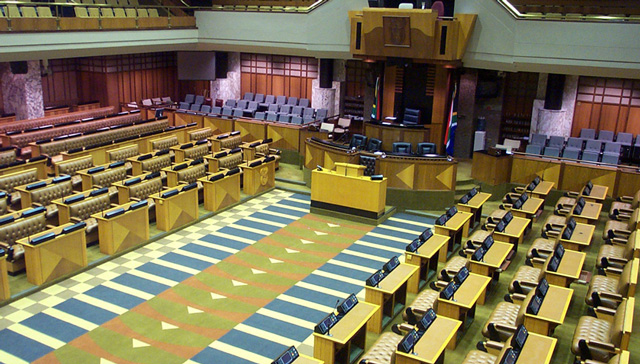
Parliament’s portfolio committee on communications will probe telecommunications costs in South Africa, starting at a two-day public hearing at the end of this month.
The two-day session, which will take place on 29 and 30 November, will form the initial phase of parliament’s investigation into the cost to communicate. During the first hearings, invitations to participate will be extended only to the department of communications, the Independent Communications Authority of SA and to Vodacom, MTN, Cell C and Telkom/8ta.
A second phase will follow later, where the committee will hold another public hearing that includes all role players in the telecoms sector as well as interested parties and the public at large.
“It is still widely reported that the cost of communication is too high in South Africa and is mainly due to a lack of competition in the market,” the portfolio committee says in its notice of the first hearing.
It says it hopes the public hearings will determine whether or not telecoms prices in South Africa have come down, whether reductions in both fixed and mobile termination rates have facilitated competition and brought down prices, and whether South Africa’s regulatory and policy frameworks are effective in helping reduce the cost to communicate and promote competition.
Termination rates are the fees the operators charge each other to carry calls onto their networks. In mobile, the rate will drop to 40c/minute in March 2013, from R1,25/minute four years earlier.
In addition, the hearings will allow network and service licensees to share their “challenges and contributions” regarding policy and regulation.
“Despite the constitutional guarantee to access to information, the reality is that in South Africa the cost to communicate is still high,” the committee says in its notice.
“According to [research], mobile prices are cheaper in more than 30 African countries than they are in South Africa, with prices in Kenya and other countries only a fraction of the prices of even the lowest-priced services in South Africa,” it adds. “In South Africa, even the modest reductions imposed on termination rates have generally not been passed on to the end user.”
It says it is aware that “some operators” dispute this, and the public hearings will probe this.
A venue for the hearings must still be determined. — (c) 2012 NewsCentral Media
- Image: Kaihsu Tai




